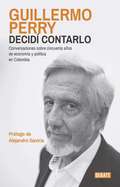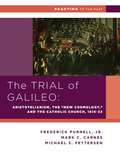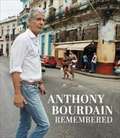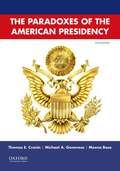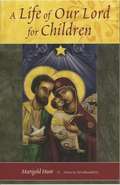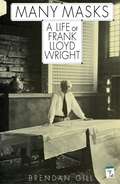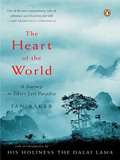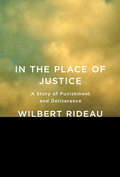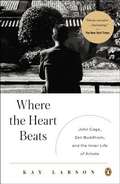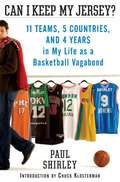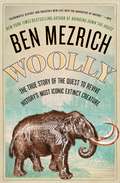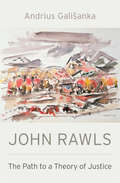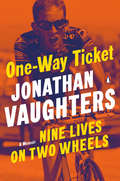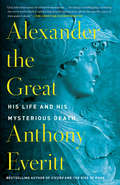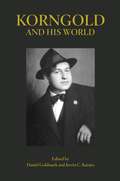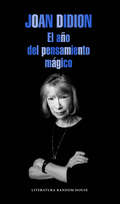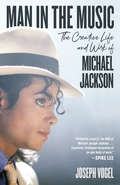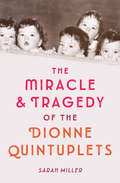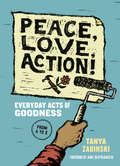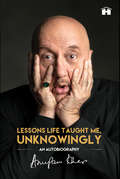- Table View
- List View
Decidí contarlo
by Guillermo Perry Isabel López GiraldoEste libro cuenta una historia asombrosa, la historia de la transformación económica, social e institucional de Colombia durante los últimos 50 años, de 1969 a 2019. El libro podría dividirse en dos partes, la primera, que va de 1968 a 1996, es una historia contada desde adentro, desde las entrañas, por un protagonista y testigo excepcional: director de impuestos, ministro en dos ocasiones, constituyente, asesor. Esta es en buena medida un ejercicio memorístico, las memorias de un técnico que, de manera ambivalente, con dudas al comienzo y con convicción después, ingresa al mundo de la política. La segunda parte, que va desde 1996 a 2018, es más analítica, es una historia ya no contada desde adentro, sino desde afuera, con la distancia escéptica que dan los años y el desapego al poder. En las dos partes hay anécdotas y reflexiones, pero la perspectiva es diferente. Los recuerdos cuentan más en la primera. Los análisis más en la segunda. La primera y la segunda parte están divididas por una decisión trascendental, un dilema trágico (la lealtad y la moralidad no siempre son compatibles) que definió la trayectoria profesional del autor: su renuncia al gobierno de Ernesto Samper una vez se hizo público que la campaña había sido financiada en parte con dineros del narcotráfico. La crítica ha dicho... Testigo y protagonista. Así puede describirse este libro escrito por alguien que a lo largo de medio siglo de vida y profesional, estuvo involucrado en varias de las grandes decisiones que marcaron no solo el destino de la economía colombiana, sino el rumbo del país. Agudo analista de su época, Perry confirma que es una de las mentes más brillantes de su generación: alguien que entiende y explica por qué el país debería progresar mucho más y las razones de no haberlo hecho. Todo ello, dicho de manera franca, con respeto a principios a los cuales sigue fiel y con la rara capacidad de poder llamar a las cosas por su nombre. En resumen, este es un texto inigualable. Ricardo Ávila, director de Portafolio Un libro de referencia para quienes quieran entender cómo se ha ido construyendo la política económica del país: las casi insuperables dificultades técnicas; los inevitables dilemas morales; las tensiones y conexiones entre las lógicas políticas y tecnocráticas; el engranaje de lo público y el poder en Colombia; el ámbito reducido en el que se toman las decisiones; el alto nivel de influencia que tienen algunas personas individualmente -sobre todo aquellas que se obsesionan con sus sueños o sus metas- y el peso que tienen las ideas en los proyectos de cada Gobierno. Perry demuestra un agudo sentido del humor y una virtud escasa en nuestro país y es que elogia y critica a todos los presidentes y Gobiernos sin importar la afinidad ideológica o personal que tenga con ellos. Sin ninguna aspiración a ganarse con él un contrato o un amigo para el futuro, el libro es no solo la recapitulación de una vida de compromiso con el país sino una invitación a los jóvenes para seguir ese camino. Juanita León, directora de La Silla Vacía
The Trial of Galileo: Aristotelianism, the New Cosmology, and the Catholic Church 1616-1633 (Reacting to the Past Series)
by Michael S. Pettersen; Frederick Purnell; Mark C. CarnesIn The Trial of Galileo the new science, as brilliantly propounded by Galileo Galilei, collides with the elegant cosmology of Aristotle, Aquinas, and medieval Scholasticism. The game is set in Rome in the early decades of the seventeenth century. Most of the debates occur within the Holy Office, the arm of the papacy that supervises the Roman Inquisition. At times action shifts to the palace of Prince Cesi, founder of the Society of the Lynx-Eyed, which promotes the new science, and to the lecture halls of the Jesuit Collegio Romano. Some students assume roles as faculty of the Collegio Romano and the secular University of Rome, the Sapienza. Others are Cardinals who seek to defend the faith from resurgent Protestantism, the imperial ambitions of the Spanish monarch, the schemes of the Medici in Florence, and the crisis of faith throughout Christendom. Some embrace the “new cosmology,” some denounce it, and still others are undecided. The issues range from the nature of faith and the meaning of the Bible to the scientific principles and methods as advanced by Copernicus, Kepler, Tycho Brahe, Giordano Bruno, and Galileo. Central texts include Aristotle’s On the Heavens and Posterior Analytics; Galileo’s Starry Messenger (1610), Letter to Grand Duchess Christina (1615) and Dialogue on the Two Chief World Systems (1632); the declarations of the Council of Trent; and the Bible. <p><p> Reacting to the Past is a series of historical role-playing games that explore important ideas by re-creating the contexts that shaped them. Students are assigned roles, informed by classic texts, set in particular moments of intellectual and social ferment. <p> An award-winning active-learning pedagogy, Reacting to the Past improves speaking, writing, and leadership skills, promotes engagement with classic texts and history, and builds learning communities. Reacting can be used across the curriculum, from the first-year general education class to “capstone” experiences. A Reacting game can also function as the discussion component of lecture classes, or it can be enlisted for intersession courses, honors programs, and other specialized curricular purposes.
Anthony Bourdain Remembered
by CnnWhen Anthony Bourdain died in June 2018, the outpouring of love from his fans around the world was momentous. The tributes spoke to his legacy: That the world is much smaller than we imagine and people are more alike than they are different. As Bourdain once said, “If I’m an advocate of anything, it’s to move…Walk in someone else’s shoes or at least eat their food.” <p><p> Anthony Bourdain Remembered brings together memories and anecdotes from fans reminiscing about Bourdain’s unique achievements and his enduring effect on their lives as well as comments from chefs, journalists, filmmakers, musicians, and writers inspired by Bourdain including Barack Obama, Eric Ripert, Jill Filipovic, Ken Burns, Questlove, and José Andrés, among many others. <p> These remembrances give us a glimpse of Bourdain's widespread impact through his political and social commitments; his dedication to travel and eating well (and widely); and his love of the written word, along with his deep compassion, open-mindedness, and interest in lives different from his own. <p> Anthony Bourdain Remembered captures Bourdain's inimitable spirit and passion in the words of his devoted fans as well as some of his closest friends and colleagues.
The Paradoxes Of The American Presidency
by Meena Bose Michael Genovese Thomas CroninIn The Paradoxes of the American Presidency, now THREE prize-winning presidential scholars, Thomas E. Cronin and Michael A. Genovese and Meenekshi Bose, explore the complex institution of the American presidency by presenting a series of paradoxes that shape and define the office. Rewrittenand updated to reflect recent political events - including the presidency of Barack Obama, the 2012, 2014 elections, with greater emphasis on the importance of midterm election on the Presidency, and the primary and presidential election of 2016. This must read fifth edition incorporates findingsfrom the latest scholarship, recent elections and court cases, and essential survey research.The fifth edition is a major revision-reducing length, increasing the emphasis on the theme of paradoxes, now making the text more appropriate to be used in conjunction with other texts, regardless of whether they take a historical, institutional, or leadership approach.
A Life Of Our Lord For Children
by Marigold HuntDescribes the life of Jesus Christ and the establishment of his Kingdom as the Catholic Church.
Girl With a Vision (Fountas & Pinnell LLI Red #Level Q)
by Julie WinterbottomGirl With a Vision Author: Julie Winterbottom
Many Masks: A Life of Frank Lloyd Wright
by Brendan GillBiography of the great American architect Frank Lloyd Wright (1867-1959) is often described as the greatest of American architects--an opinion Wright was quick to agree with, objecting only to what he considered the lessening of his place in history implied by the adjective "American." His works--among them Taliesin North, Taliesin West, Fallingwater, the Johnson Wax buildings, the Guggenheim Museum--earned him a good measure of his fame, but his flamboyant personal life earned him the rest. Here Brendan Gill, a personal friend of Wright and his family and the architecture critic for the New Yorker Magazine, gives us not only the fullest, fairest, and most entertaining account of Wright to date, but also strips away the many masks the architect tirelessly constructed to fascinate and mislead his admirers and detractors. Enriched by hitherto unpublished letters and three hundred photographs and drawings, this definitive biography makes Wright, in all his creativity, crankiness, and zest, fairly leap from its pages.
Frank Nasworthy's Wonder Wheels (Fountas & Pinnell LLI Red #Level P)
by Gary MillerFrank Nasworthy's Wonder Wheels Author: Gary Miller
Fake Art, Real Talent (Fountas & Pinnell LLI Red #Level Q)
by Terry ShannonFake Art, Real Talent Author: Terry Miller Shannon
Calling Dr. Carson (Fountas & Pinnell LLI Red #Level N)
by Alice CaryAt age eight, Ben Carson decided he wanted to be a doctor. But now he's got an F in math. It looks as if he might not pass fifth grade. Should Ben change his mind?
Babar Ali's School (Fountas & Pinnell LLI Red #Level K)
by Anne O'Brien"Many kids want to be teachers one day. But how did one boy become a teacher at age nine?"-
The Heart of the World: A Journey to Tibet's Lost Paradise
by Dalai Lama Ian BakerThe myth of Shangri-la originates in Tibetan Buddhist beliefs in beyul, or hidden lands, sacred sanctuaries that reveal themselves to devout pilgrims and in times of crisis. The more remote and inaccessible the beyul, the vaster its reputed qualities. Ancient Tibetan prophecies declare that the greatest of all hidden lands lies at the heart of the forbidding Tsangpo Gorge, deep in the Himalayas and veiled by a colossal waterfall. Nineteenth-century accounts of this fabled waterfall inspired a series of ill-fated European expeditions that ended prematurely in 1925 when the intrepid British plant collector Frank Kingdon-Ward penetrated all but a five-mile section of the Tsangpo's innermost gorge and declared that the falls were no more than a "religious myth" and a "romance of geography." The heart of the Tsangpo Gorge remained a blank spot on the map of world exploration until world-class climber and Buddhist scholar Ian Baker delved into the legends. Whatever cryptic Tibetan scrolls or past explorers had said about the Tsangpo's innermost gorge, Baker determined, could be verified only by exploring the uncharted five-mile gap. After several years of encountering sheer cliffs, maelstroms of impassable white water, and dense leech-infested jungles, on the last of a series of extraordinary expeditions, Baker and his National Geographic-sponsored team reached the depths of the Tsangpo Gorge. They made news worldwide by finding there a 108-foot-high waterfall, the legendary grail of Western explorers and Tibetan seekers alike. The Heart of the World is one of the most captivating stories of exploration and discovery in recent memory--an extraordinary journey to one of the wildest and most inaccessible places on earth and a pilgrimage to the heart of the Tibetan Buddhist faith.
In The Place of Justice: A Story of Punishment and Deliverance
by Wilbert RideauFrom Wilbert Rideau, the award-winning journalist who spent forty-four years in Louisiana prisons working against unimaginable odds to redeem himself, the story of a remarkable life: a crime, its punishment, and ultimate triumph. After killing a woman in a moment of panic following a botched bank robbery, Rideau, denied a fair trial, was improperly sentenced to death at the age of nineteen. After more than a decade on death row, his sentence was amended to life imprisonment, and he joined the inmate population of the infamous Angola penitentiary. Soon Rideau became editor of the prison newsmagazineThe Angolite,which under his leadership became an uncensored, daring, and crusading journal instrumental in reforming the violent prison and the corrupt Louisiana justice system. With the same incisive feel for detail that brought Rideau great critical acclaim, here he brings to vivid life the world of the prison through the power of his pen. We see Angola's unique culture, encompassing not only rivalries, sexual slavery, ingrained racism, and daily, soul-killing injustices but also acts of courage and decency by keeper and kept alike. As we relive Rideau's remarkable rehabilitation--he lived a more productive life in prison than do most outside--we also witness his long struggle for justice. In the Place of Justicegoes far beyond the confines of a prison memoir, giving us a searing exposé of the failures of our legal system framed within the dramatic tale of a man who found meaning, purpose, and hope in prison. This is a deeply moving, eloquent, and inspirational story about perseverance, unexpected friendships and love, and the possibility that good can be forged under any circumstances. From the Hardcover edition.
Where the Heart Beats: John Cage, Zen Buddhism, and the Inner Life of Artists
by Kay LarsonA “heroic” and “fascinating” biography of John Cage showing how his work, and that of countless American artists, was transformed by Zen Buddhism (The New York Times) Where the Heart Beats is the story of the tremendous changes sweeping through American culture following the Second World War, a time when the arts in America broke away from centuries of tradition and reinvented themselves. Painters converted their canvases into arenas for action and gesture, dancers embraced pure movement over narrative, performance artists staged “happenings” in which anything could happen, poets wrote words determined by chance. In this tumultuous period, a composer of experimental music began a spiritual quest to know himself better. His earnest inquiry touched thousands of lives and created controversies that are ongoing. He devised unique concerts—consisting of notes chosen by chance, randomly tuned radios, and silence—in the service of his absolute conviction that art and life are one inseparable truth, a seamless web of creation divided only by illusory thoughts. What empowered John Cage to compose his incredible music—and what allowed him to inspire tremendous transformations in the lives of his fellow artists—was Cage’s improbable conversion to Zen Buddhism. This is the story of how Zen saved Cage from himself. Where the Heart Beats is the first book to address the phenomenal importance of Zen Buddhism to John Cage’s life and to the artistic avant-garde of the 1950s and 1960s. Zen’s power to transform Cage’s troubled mind—by showing him his own enlightened nature—liberated Cage from an acute personal crisis that threatened everything he most deeply cared abouthis life, his music, and his relationship with his life partner, Merce Cunningham. Caught in a society that rejected his art, his politics, and his sexual orientation, Cage was transformed by Zen from an overlooked and marginal musician into the absolute epicenter of the avant-garde. Using Cage’s life as a starting point, Where the Heart Beats looks beyond to the individuals Cage influenced and the art he inspired. His creative genius touched Robert Rauschenberg, Jasper Johns, Andy Warhol, Yoko Ono, Alan Kaprow, Morton Feldman, and Leo Castelli, who all went on to revolutionize their respective disciplines. As Cage’s story progresses, as his collaborators’ trajectories unfurl, Where the Heart Beats shows the blossoming of Zen in the very heart of American culture. .
Can I Keep My Jersey?: 11 Teams, 5 Countries, and 4 Years in My Life as a Basketball Vagabond
by Chuck Klosterman Paul ShirleyHe's been called a journeyman. Even Paul wouldn't dispute that classification. Regardless, Bill Simmons, ESPN.com's "The Sports Guy," has said of Paul Shirley, "We could finally have an answer to the question 'What would it be like if one of our friends was an NBA player?"There's no denying that Paul Shirley is the closest thing pro basketball's got to Odysseus. In Homeric fashion, he has logged time practically everywhere in the roundball universe, from six NBA cities to pro leagues in Spain and Greece to North America's pro ball Siberia, the minor leagues. Hell, he's even played in the real Siberia. And in Can I Keep My Jersey?, Shirley finally puts down roots long enough to deliver one of the great locker-room chronicles of the modern age. With sharp elbows and an even sharper wit, Shirley-whose writings have been described as "wildly entertaining" by The Wall Street Journal-drops hilarious commentary, revealing which teams have the best cheerleaders (he's spent many a time-out watching them ply their trade), why Christ is rapidly becoming every team's "sixth man," and even the best ways to get bloodstains out of your game uniform, using only an ordinary bar of soap and a hotel bathroom sink.From sharing the court with Kobe and Shaq to perusing the food court at some mall in a bush-league burg; from taking pregame layups to getting laid out by a stray knee from an NBA power forward; from hopping a limo to the team's charter jet to dashing to catch the van home from a B-league game in Tijuana, Shirley dishes on what it's like to try to make it as a professional athlete. Can I Keep My Jersey? is a rollicking, thoughtful, even thought-provoking insider's look at a pro baller's life on the fringe. Like Jim Bouton's Ball Four or John Feinstein's A Season on the Brink, Shirley's odyssey deserves to find a home on every sports fan's bookshelf.From the Hardcover edition.
Woolly: The True Story of the Quest to Revive One of History's Most Iconic Extinct Creatures
by Ben MezrichScience fiction becomes reality in this Jurassic Park-like story of the genetic resurrection of an extinct species—the woolly mammoth—by the bestselling author of The Accidental Billionaires and The 37th Parallel.“With his knack for turning narrative nonfiction into stories worthy of the best thriller fiction” (Omnivoracious), Ben Mezrich takes us on an exhilarating true adventure story from the icy terrain of Siberia to the cutting-edge genetic labs of Harvard University. A group of young scientists, under the guidance of Dr. George Church, the most brilliant geneticist of our time, works to make fantasy reality by sequencing the DNA of a frozen woolly mammoth harvested from above the Arctic circle, and splicing elements of that sequence into the DNA of a modern elephant. Will they be able to turn the hybrid cells into a functional embryo and bring the extinct creatures to life in our modern world? Along with Church and his team of Harvard scientists, a world-famous conservationist and a genius Russian scientist plan to turn a tract of the Siberian tundra into Pleistocene Park, populating the permafrost with ancient herbivores as a hedge against an environmental ticking time bomb. More than a story of genetics, this is a thriller illuminating the race against global warming, the incredible power of modern technology, the brave fossil hunters who battle polar bears and extreme weather conditions, and the ethical quandary of cloning extinct animals. Can we right the wrongs of our ancestors who hunted the woolly mammoth to extinction—and at what cost?
John Rawls: The Path to a Theory of Justice
by Andrius GališankaCritics have maintained that John Rawls’s theory of justice is unrealistic and undemocratic. Andrius Gališanka’s incisive intellectual biography argues that in misunderstanding the origins and development of Rawls’s argument, previous narratives fail to explain the novelty of his philosophical approach and so misunderstand his political vision.
One-Way Ticket: Nine Lives on Two Wheels
by Jonathan VaughtersThe new memoir tracing story of cycling since the 1980s, through the eyes of Jonathan Vaughters, founder of team Education First and one of the sport's most towering figures.Jonathan Vaughters' story is the story of modern cycling. From his early years as a keen cyclist in his hometown in Colorado to his unflinching rite of passage as a professional rider with US Postal to his elevation as one of cycling's most resilient, ethical and intelligent team bosses, the highs and lows of his career have mirrored those of the sport itself. Vaughters has had a front-row seat for most of the major events in cycling over the past three decades. He was both a former teammate of Lance and a leading witness against him. And he went on to renounce doping and start the first pro cycling team to dedicate itself to clean riding, which has grown into one of the most successful teams competing today and started a movement that has swept across the sport.This is also not simply a story of races won and lost: Vaughters shows readers how he navigated the complex, international business of building Slipstream into a world-class cycling team. Over the past decade, he has led the sport out of the scandal-plagued Armstrong era. By presenting the world with a team made of talented racers built around a rigorous approach to clean racing, he set a new standard within cycling that has since spread across the peloton. Written from the unique perspective of both a racer and a team manager, One-Way Ticket gives the complete story of what it takes to build a winning team and repair the reputation of a sport.
Alexander the Great: His Life and His Mysterious Death
by Anthony EverittWhat can we learn from the stunning rise and mysterious death of the ancient world’s greatest conqueror? An acclaimed biographer reconstructs the life of Alexander the Great in this magisterial revisionist portrait.“Reads as easily as a novel . . . Nearly unparalleled insight into the period and the man make this a story for everyone.”—Kirkus Reviews (starred review) More than two millennia have passed since Alexander the Great built an empire that stretched to every corner of the ancient world, from the backwater kingdom of Macedonia to the Hellenic world, Persia, and ultimately to India—all before his untimely death at age thirty-three. Alexander believed that his empire would stop only when he reached the Pacific Ocean. But stories of both real and legendary events from his life have kept him evergreen in our imaginations with a legacy that has meant something different to every era: in the Middle Ages he became an exemplar of knightly chivalry, he was a star of Renaissance paintings, and by the early twentieth century he’d even come to resemble an English gentleman. But who was he in his own time? In Alexander the Great, Anthony Everitt judges Alexander’s life against the criteria of his own age and considers all his contradictions. We meet the Macedonian prince who was naturally inquisitive and fascinated by science and exploration, as well as the man who enjoyed the arts and used Homer’s great epic the Iliad as a bible. As his empire grew, Alexander exhibited respect for the traditions of his new subjects and careful judgment in administering rule over his vast territory. But his career also had a dark side. An inveterate conqueror who in his short life built the largest empire up to that point in history, Alexander glorified war and was known to commit acts of remarkable cruelty. As debate continues about the meaning of his life, Alexander's death remains a mystery. Did he die of natural causes—felled by a fever—or did his marshals, angered by his tyrannical behavior, kill him? An explanation of his death can lie only in what we know of his life, and Everitt ventures to solve that puzzle, offering an ending to Alexander’s story that has eluded so many for so long.
Korngold and His World (The\bard Music Festival Ser. #45)
by Kevin C. Karnes Daniel GoldmarkA brand-new look at the life and music of renowned composer Erich Wolfgang KorngoldErich Wolfgang Korngold (1897–1957) was the last compositional prodigy to emerge from the Austro-German tradition of Mozart and Mendelssohn. He was lauded in his youth by everyone from Mahler to Puccini and his auspicious career in the early 1900s spanned chamber music, opera, and musical theater. Today, he is best known for his Hollywood film scores, composed between 1935 and 1947. From his prewar operas in Vienna to his pathbreaking contributions to American film, Korngold and His World provides a substantial reassessment of Korngold’s life and accomplishments.Korngold struggled to reconcile the musical language of his Viennese upbringing with American popular song and cinema, and was forced to adapt to a new life after wartime emigration to Hollywood. This collection examines Korngold’s operas and film scores, the critical reception of his music, and his place in the milieus of both the Old and New Worlds. The volume also features numerous historical documents—many previously unpublished and in first-ever English translations—including essays by the composer as well as memoirs by his wife, Luzi Korngold, and his father, the renowned music critic Julius Korngold.The contributors are Leon Botstein, David Brodbeck, Bryan Gilliam, Daniel Goldmark, Lily Hirsch, Kevin Karnes, Sherry Lee, Neil Lerner, Sadie Menicanin, Ben Winters, Amy Wlodarski, and Charles Youmans.Bard Music Festival 2019Korngold and His WorldBard CollegeAugust 9–11 and 16–18, 2019
El año del pensamiento mágico
by Joan DidionUnas memorias conmovedoras sobre la enfermedad y la muerte a través de la experiencia personal de la periodista y escritora Joan Didion. Este libro memorable ha cautivado a millones de lectores en todo el mundo. En él, la escritora Joan Didion, una de las autoras norteamericanas más reputadas de finales del siglo XX, narra con una fascinante distancia emocional la muerte repentina de su marido, el también escritor John Gregory Dunne. Este libro tan breve como intenso es, por consiguiente, una reflexión sobre el duelo y la crónica de una supervivencia. El año del pensamiento mágico obtuvo el National Book Award en 2005. Reseñas:«Llena de detalles y de una deslumbrante honestidad [...], un retrato indeleble de la pérdida y el luto.» Michiko Kakutani, The New York Times «Un acto consumado de valentía literaria, una escritora reconocida por su claridad que nos permite entrar en su mente mientras esta se nubla por el luto.»Lev Grossman, Time «Un libro que, repitiendo el tópico, se lee "como una novela" y cuya tensión sale de las entrañas de un ser herido pero dotado con una excepcional capacidad analítica y expresiva.»El Cultural «En una cultura donde la elaboración de los sentimientos [...] ha sido rescindida por una prohibición directa a través de la vergüenza o por el "deber ético del goce" [...], el libro de Didion duplica el valor del testimonio y de la invitación que lanza a un mundo de bobos emocionales técnicamente competentes.»El Mundo «El libro es un intento de trascender el estupor y sinsentido en que nos deja sumidos el dolor cuando experimentamos la muerte de alguien muy cercano.»Eduardo Lago, Babelia, El País
Man in the Music: The Creative Life And Work Of Michael Jackson
by Joseph VogelFor half a century, Michael Jackson’s music has been an indelible part of our cultural consciousness. Landmark albums such as Off the Wall and Thriller shattered records, broke racial barriers, amassed awards, and set a new standard for popular music. While his songs continue to be played in nearly every corner of the world, however, they have rarely been given serious critical attention. The first book dedicated solely to exploring his creative work, Man in the Music guides us through an unparalleled analysis of Jackson’s recordings, album by album, from his trailblazing work with Quincy Jones to his later collaborations with Teddy Riley, Jimmy Jam, Terry Lewis, and Rodney Jerkins. Drawing on rare archival material and on dozens of original interviews with the collaborators, engineers, producers, and songwriters who helped bring the artist’s music into the world, Jackson expert and acclaimed cultural critic Joseph Vogel reveals the inspirations, demos, studio sessions, technological advances, setbacks and breakthroughs, failures and triumphs, that gave rise to an immortal body of work.
The Miracle & Tragedy of the Dionne Quintuplets: Five Children Who Captivated The Entire World
by Sarah MillerIn this riveting, beyond-belief true story from the author of The Borden Murders, meet the five children who captivated the entire world. <P><P>When the Dionne Quintuplets were born on May 28, 1934, weighing a grand total of just over 13 pounds, no one expected them to live so much as an hour. Overnight, Yvonne, Annette, Cécile, Émilie, and Marie Dionne mesmerized the globe, defying medical history with every breath they took. In an effort to protect them from hucksters and showmen, the Ontario government took custody of the five identical babies, sequestering them in a private, custom-built hospital across the road from their family--and then, in a stunning act of hypocrisy, proceeded to exploit them for the next nine years. <P><P>The Dionne Quintuplets became a more popular attraction than Niagara Falls, ogled through one-way screens by sightseers as they splashed in their wading pool at the center of a tourist hotspot known as Quintland. Here, Sarah Miller reconstructs their unprecedented upbringing with fresh depth and subtlety, bringing to new light their resilience and the indelible bond of their unique sisterhood.
Peace, Love, Action!: Everyday Acts of Goodness from A to Z
by Tanya ZabinskiAn invitation to young readers to roll up their sleeves, get inspired, and take action to build a sustainable, just, and loving world.Peace, Love, Action! is an illustrated, illuminated A-Z of everyday actions that directly make a peaceful, fun, and vibrant world. With original artworks bringing each action to life, "make friends," "go local," "cooperate," "forgive" --seemingly small deeds can really add up! Illustrated by Tanya Zabinski in her characteristic earthy style, each action comes with an inspirational mini-bio of a real hero who exemplifies that action, from Thich Nhat Hanh ("breathe") to Wangari Maathai ("plant"), and follows with a set of "What You Can Do" prompts. With a foreword by singer-songwriter and activist legend, Ani DiFranco.
Lessons Life Taught Me, Unknowingly: An Autobiography
by Anupam KherAn extraordinary, riveting and no-holds-barred saga studded with fascinating behind-the-scenes revelations, anecdotes and rare nuggets of lessonsAnupam Kher’s life story is nothing short of a grand masala box office hit. It has drama, comedy, romance and even action! Who knew that a small-town Shimla boy would one day become one of the most recognised actors in the world and go on to win various national and international awards for his contribution in the field of cinema and arts?A powerhouse of talent with over 530 films (and counting) in his repertoire, Anupam Kher stands out not only because of his iconic bald head, but also for his forthright views and opinions, however controversial they may be. He has always been distinct and offbeat. His autobiography is, too . . . for it is not just another chronological account of his life. It is, in fact, also peppered with incredible life lessons that are bound to resonate with every aspiring artiste and, most of all, the common man.Here is a kaleidoscopic peep into the life and times of a true genius and forever entertainer.
